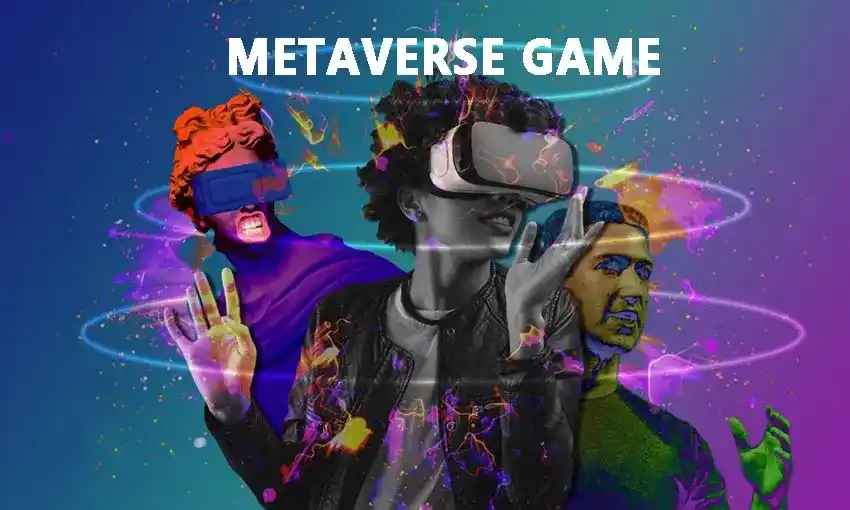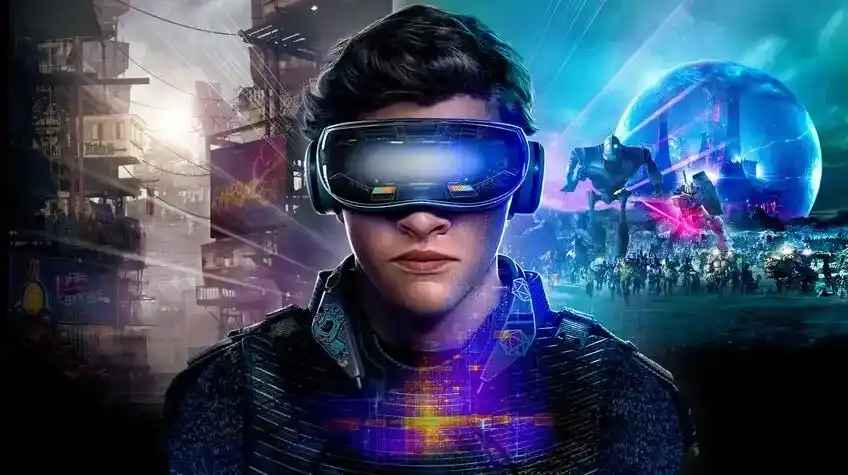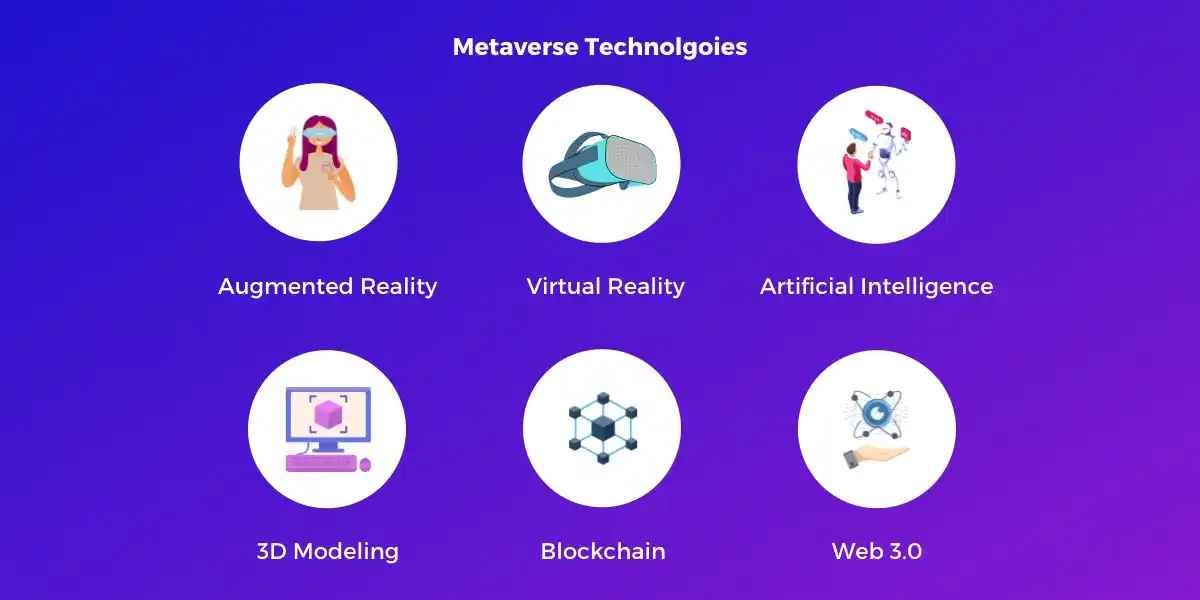Metaverse Gaming: Exploring the Future of Virtual Worlds
Updated on : 04 March 2025

Image Source: google.com
Table Of Contents
Introduction to Metaverse Games
The metaverse represents a virtual universe where users can interact with each other and digital objects in a highly immersive environment. This convergence of physical and digital spaces is enabled by technologies such as virtual reality (VR), augmented reality (AR), blockchain, and artificial intelligence (AI). Metaverse games are a significant component of this ecosystem, offering players a unique blend of interaction, exploration, and earning opportunities that transcend traditional gaming experiences.

Image Source: google.com
Key Features of Metaverse Games
Immersive Experience
Metaverse games leverage VR and AR technologies to transport players into virtual worlds that are visually stunning and deeply immersive. Unlike traditional games, which are often confined to a screen, metaverse games blur the lines between the real and virtual, providing an experience that feels tangible and real.

Need Expert Guidance for Your Next Metaverse Game Project?
Interconnected Universes
One of the most compelling aspects of metaverse games is their ability to connect players across different virtual landscapes. Unlike standalone games, metaverse games exist within a broader, interconnected virtual world where players can explore, interact, and collaborate with others seamlessly.
Customization and Ownership
Players in metaverse games have the ability to customize their avatars, virtual spaces, and in-game assets. Moreover, through blockchain technology, players can own digital assets in the form of Non-Fungible Tokens (NFTs), which can be traded or used across different games.
Earning Opportunities
Metaverse games often incorporate play-to-earn mechanics, allowing players to earn cryptocurrencies or NFTs by completing quests, winning battles, or engaging in other in-game activities. This feature opens up new revenue streams for players, making metaverse gaming not just a form of entertainment but also a potential source of income.
Social Interaction
The metaverse fosters social interaction on a large scale, enabling players to form communities, collaborate, compete, and communicate with each other in ways that go beyond traditional multiplayer games.
Technologies Powering Metaverse Games

Image Source: google.com
Blockchain and Cryptocurrencies
Blockchain technology is crucial for metaverse games as it enables secure, transparent, and decentralized transactions. Players can buy, sell, and trade digital assets using cryptocurrencies, which adds a layer of real-world value to in-game items.
For the Blockchain Development Services link:
Unlock the future of trust with decentralized applications tailored to your business requirements. Hexadecimal Software specializes in delivering robust and scalable blockchain services. Explore our comprehensive blockchain development services, and discover how we can help you leverage secure and transparent solutions on our Blockchain Development Service page.
Virtual and Augmented Reality (VR/AR)
VR and AR technologies provide the immersive experience that defines metaverse games. They allow players to engage with virtual environments in a highly interactive and realistic manner.
Artificial Intelligence (AI)
AI enhances gameplay by creating dynamic environments, adaptive challenges, and intelligent NPCs (non-player characters). It also helps in managing complex game mechanics and ensuring a seamless user experience.
For the AI/ML Development Services link:
Elevate your business with advanced algorithms and machine learning techniques to optimize processes and enhance decision-making. Hexadecimal Software excels in providing cutting-edge AI services that elevate business performance and drive growth. To learn more about our AI/ML Development Services, visit our AI/ML Development Service page.
Internet of Things (IoT) and Spatial Computing
While not as directly involved in gameplay, IoT and spatial computing contribute to the broader metaverse ecosystem by enhancing the integration of physical and digital spaces.
Top Metaverse Projects
| Project Name | Blockchain | Key Features | Native Token |
|---|---|---|---|
| Decentraland | Ethereum | Virtual land ownership, content creation, in-world economy | MANA |
| The Sandbox | Ethereum | User-generated content, play-to-earn mechanics, NFT marketplace | SAND |
| Axie Infinity | Ethereum | NFT-based creatures, breeding and battling, play-to-earn | AXS |
| Star Atlas | Solana | Space exploration, resource gathering, strategic battles | ATLAS |
| Alien Worlds | Binance Smart Chain | Mining and governance mechanics, NFT-based assets | TLM |
| Cryptovoxels | Ethereum | Virtual real estate, NFT-based assets, community-driven | VOX |
| Illuvium | Ethereum | Open-world exploration, strategic battles, NFT-based items | ILV |
| My Neighbor Alice | Ethereum | Farming simulation, NFT-based assets, social interaction | ALICE |
| Krystopia | Ethereum | Puzzle-adventure game, NFT integration, immersive storyline | KRYSTO |
| UFO Gaming | Ethereum | Dark metaverse game, play-to-earn mechanics, NFT-based assets | UFO |
Top 10 Metaverse Games
Here's a table detailing the top 10 metaverse games, focusing on their gameplay and unique features:
| Game Name | Genre | Key Features | Blockchain |
|---|---|---|---|
| Decentraland | Virtual World | Land ownership, content creation, social interaction | Ethereum |
| Axie Infinity | Breeding, Card Game, Metaverse | NFT-based creatures, breeding and battling, play-to-earn | Ethereum |
| The Sandbox | User-Generated Content | Play-to-earn mechanics, NFT marketplace, community-driven | Ethereum |
| Illuvium | RPG, Auto Battler, Metaverse | Open-world exploration, strategic battles, NFT-based items | Ethereum |
| Alien Worlds | Mining and Governance | NFT-based assets, mining and governance mechanics | Binance Smart Chain |
| Cryptovoxels | Virtual Real Estate | NFT-based assets, community-driven, virtual real estate | Ethereum |
| My Neighbor Alice | Simulation, Metaverse | Farming simulation, NFT-based assets, social interaction | Ethereum |
| Krystopia | Puzzle-Adventure, Metaverse | Immersive storyline, NFT integration, puzzle-solving | Ethereum |
| UFO Gaming | Dark Metaverse Game | Play-to-earn mechanics, NFT-based assets, immersive storyline | Ethereum |
| Star Atlas | Space Exploration, Metaverse | Resource gathering, strategic battles, NFT-based assets | Solana |

Build Your Next Metaverse Game with Blockchain Expertise
Developing a Metaverse Game
Developing a metaverse game involves several key steps:
- Blockchain Ecosystem Selection: Choosing the right blockchain platform is crucial for managing transactions and digital assets securely and efficiently.
- Storyboarding: Developing a compelling narrative or concept that integrates well with the immersive nature of the metaverse.
- Visual Development: Creating visually appealing and detailed virtual environments that leverage VR/AR capabilities.
- Game Mechanics Implementation: Designing engaging gameplay mechanics that balance fun with financial incentives, such as play-to-earn models.
- Integration and Testing: Ensuring that all components, including blockchain functions and social features, work seamlessly together. Thorough testing is essential to prevent bugs and security vulnerabilities.
Future of Metaverse Games
The future of metaverse gaming is closely tied to advancements in technologies like AR/VR, edge computing, AI, 5G, and blockchain. As these technologies evolve, we can expect metaverse games to become even more immersive, interactive, and interconnected. The market for metaverse gaming is projected to grow significantly, driven by its innovative approach to gaming and its potential to transform how we experience online interactions.
In conclusion, metaverse games represent a revolutionary shift in the gaming industry, offering players immersive experiences, social interaction, customization, and earning opportunities that are unparalleled in traditional gaming. As technology continues to advance, the potential of metaverse games to reshape the entertainment and social interaction landscapes is vast and exciting. Here are paragraphs for the "Conclusion" and "References" sections: Here are some FAQs related to metaverse game development, formatted as requested:
FAQs
Q: What is Metaverse Game Development?
A: Metaverse game development involves creating immersive, interactive virtual worlds where users can play, socialize, and engage in various activities. It integrates technologies like blockchain, VR/AR, AI, and 3D modeling to provide a seamless gaming experience.
Q: What Technologies Are Used in Metaverse Game Development?
A: Key technologies include blockchain for secure transactions, VR/AR for immersive experiences, AI for dynamic environments, game engines like Unity and Unreal Engine for development, and web3 integrations for decentralized applications.
Q: How Do I Start Developing a Metaverse Game?
A: Begin by selecting a suitable blockchain ecosystem, conceptualizing your game idea, and designing the game environment and mechanics. Use tools like Unity or Unreal Engine for development.
Q: What Are the Benefits of Metaverse Games?
A: Metaverse games offer immersive experiences, social interaction, customization, and economic opportunities through NFTs and play-to-earn models.
Q: What Services Does Hexadecimal Software Offer for Metaverse Game Development? A: Hexadecimal Software provides blockchain development services for secure transactions, AR/VR development for immersive experiences, and AI/ML services for enhancing gameplay mechanics.
Q: How Do NFTs Work in Metaverse Games?
A: NFTs represent unique digital assets within metaverse games, allowing players to own and trade items like characters, land, or in-game items, providing real-world value and utility.
Q: What Are the Challenges in Metaverse Game Development?
A: Challenges include ensuring seamless integration of blockchain and VR/AR technologies, managing complex game mechanics, and maintaining user engagement through dynamic content updates.
Q: What Is the Future of Metaverse Gaming?
A: The future of metaverse gaming is promising, with advancements in AR/VR, AI, and blockchain expected to enhance immersion, interoperability, and economic opportunities.
Q: How Can I Learn More About Hexadecimal Software's Services?
A: Visit Hexadecimal Software's website to explore their blockchain, AR/VR, and AI/ML development services in detail.
Q: What Are Some Popular Metaverse Games?
A: Popular metaverse games include Decentraland, The Sandbox, Axie Infinity, and Illuvium, each offering unique experiences like virtual land ownership and NFT-based gameplay.
Conclusion
In conclusion, metaverse games represent a revolutionary shift in the gaming industry, offering players immersive experiences, social interaction, customization, and earning opportunities that are unparalleled in traditional gaming. As technology continues to advance, the potential of metaverse games to reshape the entertainment and social interaction landscapes is vast and exciting. With the integration of blockchain, VR/AR, and AI, metaverse games are poised to become a significant part of our digital lives, providing new avenues for creativity, entrepreneurship, and community building. Whether you're a gamer, developer, or investor, the metaverse offers a promising future filled with endless possibilities.
References
For those interested in delving deeper into the world of metaverse games and Hexadecimal Software's services, here are some key references:
- Hexadecimal Software: Blockchain Development Service, AR/VR Development Service, AI/ML Development Service.
- Metaverse Projects: Decentraland, The Sandbox, Axie Infinity, and other notable projects can be explored through their official websites and documentation.
- Industry Reports: Various market research reports on the metaverse and blockchain gaming provide insights into market trends and future projections.
- Academic Papers: Research papers on VR/AR, blockchain, and AI offer technical insights into the technologies powering metaverse games.


